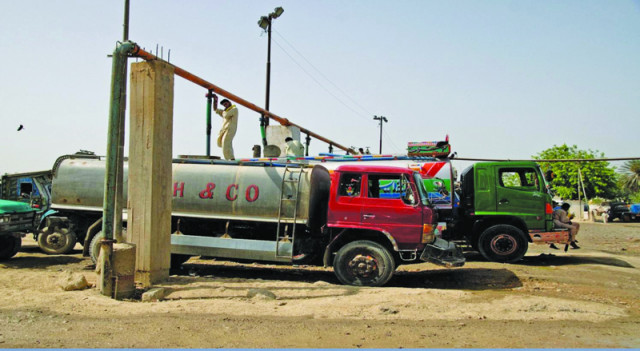Reforming Karachi - A systematic approach
It is the financial heart of Pakistan, supports its largest industrial and services sector base.

It is a port city and has land aplenty. Yet it is a city exhibiting extreme socio-economic diversities with a majority of residents being marginalised in terms of access to land, housing, civic and social services and financial instability. It is a city with a weak and disempowered city government and exhibiting an alarming decline in the quality of services related with civic governance.
The vacuum in provision of services has been filled by the informal sector that, although does provide services to millions in the city, is not regulated or subsidised in any way by the government; is not required to conform to any standards in quality of service provision. More importantly, the government gains minimal financial dividends from the revenue generated in this sector.
With decreasing writ, growing incapacity and increasing corruption within government institutions, it is extremely alarming that the informal sector is mutating in many cases into a criminalised mafia, particularly when it comes to control over land and land-based transactions as the city expands without any obligation to follow formal planning, development rules and procedures.
Karachi is many cities within a city. The Human Development Index (HDI) rating would change drastically as we move from one end or locality of the city to another. It is now a segregated city, harbouring gated communities. It is unfortunate that the key political entities that shape the fate of this city are now being recognised along ethnic lines, adding to a sense of disintegration among communities, a growing trust deficit and violent conflict, since the political entities seldom show a capacity to find consensus on a common vision and governance framework for the city.

Karachi is faced with extreme socio-economic diversities with a majority of residents being marginalised in terms of access to land, housing, civic and social services and financial instability. PHOTO: COURTESY FARHAN ANWAR
So what can be done to reverse this downward spiral in urban governance and community bonding? Maybe a beginning can be made by the citizens finding greater courage and motivation to socially mobilise and network.
Citizen mobilisation has to come at two separate levels. One, in finding ways to network and evolve a citizen's agenda for reform, where various strands of the civil society - NGOs, academia, private sector and media collaborate to initiate projects and more importantly processes to make this city a better place. Secondly, they can contribute by influencing the government by demanding better governance.
However, for large scale and sustainable reforms, the role of the government is critical. For example, there can be no hope of having a viable public mass transit system without government intervention. Incapacity of the government to do so has, for example, manifested itself in the city being flooded with Qinchis - an absolutely embarrassing intervention given the age we live in and the size and potential of the city. Then there is the matter of provision of what are called merit goods - health and education, where the government has to take the lead.
We desperately need a political consensus to find an urban governance construct and vision for an empowered, financially viable, environmentally progressive and ethno-politically inclusive city. A critically required policy decision is establishing a 'Municipal Services Cadre.'
A city government empowered with policy and functional mandate would have to be technically and managerially equipped to deliver. This can be done by facilitating a role for non-service skilled personnel in city management. For transparent governance, we need meaningful citizen engagement with say the formation of Citizen Wards and Commissions, mandated with important management roles and for creating a space for viable private sector involvement.
Farhan Anwar is an urban planner and runs a non-profit organization based in Karachi city focusing on urban sustainability issues
Published in The Express Tribune, December 22nd, 2014.



















COMMENTS
Comments are moderated and generally will be posted if they are on-topic and not abusive.
For more information, please see our Comments FAQ